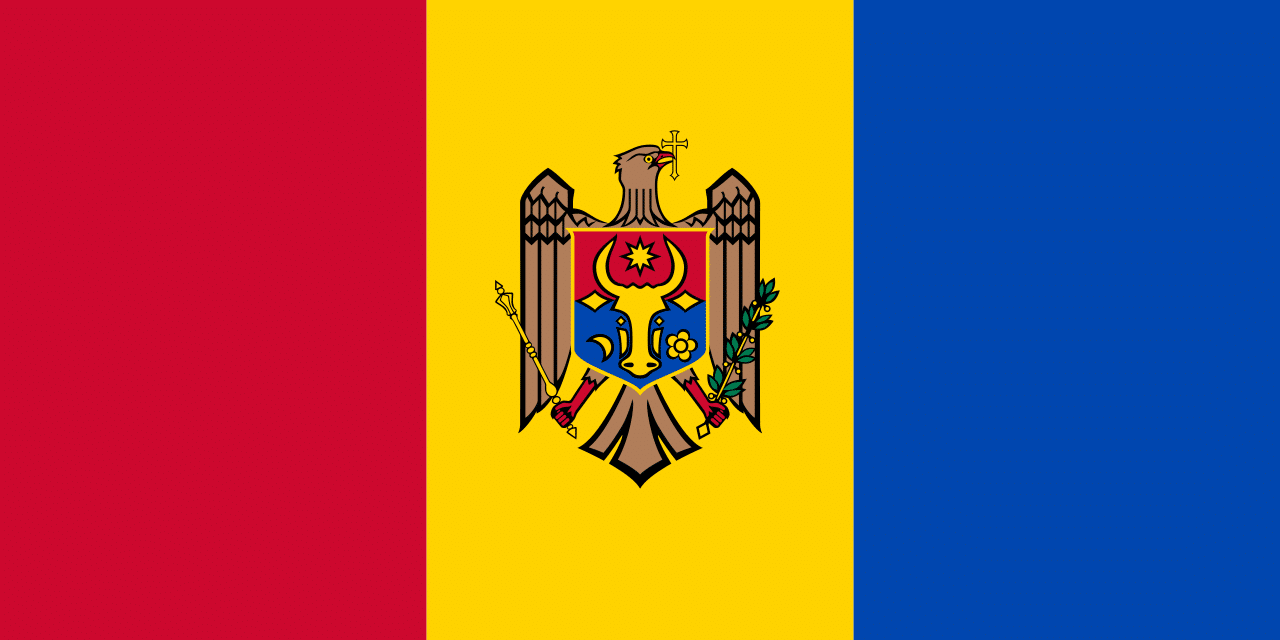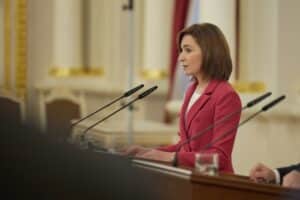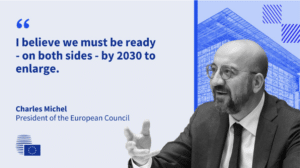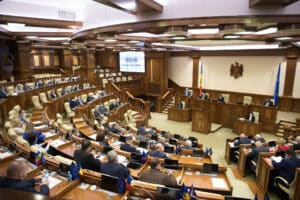Photo: The flag of Moldova – Wikimedia Commons
On November 5th, local elections were held in Moldova, appointing new councils and mayors nationwide. The elections were a test of support for President Sandu’s pro-European government and her Party of Action and Solidarity (PAS), which have provided a pro-European direction for Moldova. Leading up to the elections, there was much unrest about Russian influence on the elections. To prevent this, among other things, the participation of candidates from the Shor Party, a party led by the highly controversial and convicted businessman Ilan Shor, was banned. Candidates from this party were not allowed to participate in elections, as the Constitutional Court declared the party as ‘unconstitutional’. Members of the Shor Party tried to take part in the elections under the name ‘Chance Party’, but the Moldovan government decided to exclude the party just two days before the elections with. They did so using special powers granted by the state of emergency Moldova is currently in, bypassing the usual mechanisms. In addition, several major Russian news websites such as Interfax and TASS were blocked five days before the election. Sandu accused Russia of funding “criminal groups” with more than 5 million dollar. The election results show that most of Moldova’s population still supports Sandu’s pro-European course, but support has decreased. The PAS party failed to defeat the incumbent mayor of Chisinau. The incumbent mayor, Ion Ceban, acquired his position as mayor with the help of a Russian campaign team linked to the FSB. During his time in office, he left the Socialist Party and founded the National Alternative Movement (MAN), which takes a more pro-European stance.
Results
The results show a decrease in the support of the pro-European government. Multiple key positions mainly in bigger cities were won by candidates of other parties. In the capital Ion Ceban, member of the Man party was elected with just over 50% of the votes, claiming a narrow one-round victory. In Moldova’s second largest city Balti, no candidate obtained a clear majority, but the PAS-candidate came far behind 3 other candidates. In Orhei, a middle-range city where Ilan Shor served as mayor from 2015 to 2019, the electorate elected a close ally of Shor. Though, the PAS party remained the biggest party in the country obtaining 240 mayoral positions out of 898. Andrei Spinu, minister of infrastructure and regional development and member of PAS, said that despite losing the Chisinau mayoral elections the overall results were a success. Igor Dodan, President of Moldova from 2016 to 2020 and member of the Socialist Party, opposed this, naming President Sandu a ‘dictator’ as he called for early presidential and parliamentary elections.
Upcoming elections
In November 2024 presidential elections will be held. The outcome of these elections will be determinative for the future of Moldova and its political direction. In July 2025 parliamentary elections will be held.



